A post from Jacob Robertson in Mumbles, West Cross & Newton facebook page.
Please see my call for support for my mental health below. I have been suicidal and stuck in hospital since Feburary. I have made several attempts on my life this year yet I still don’t have the support I require and have in fact been made to feel worse by the very people that are meant to be helping me. My psychiatrist told me in a meeting ‘she’d come to the reality I could take my life early and might not get any help’. I’m only 18 and am struggling significantly. I should be in school with my mates enjoying life but a lack of support is preventing me from doing this. Mental health services in Wales are failing young people like myself and if they do not change lives like mine will continue to be put at risk. I would appreciate if you could take a moment today to read and sign my petition. I have also created a fundraiser should you feel you want to contribute towards my cause. Thank you. I would appreciate if you could share this if you are able too so I can raise awareness and hopefully get the support I require.
The petition:
My name is Jacob Robertson and I am an 18-year-old student who was admitted to Ward F, Swansea Bay University Health Board following a suicide attempt on 11th February 2025 and remained there until 23rd April 2025 when I was transferred to Cefn Coed Hospital. I am writing this petition not just on behalf of myself but to raise awareness of severe safety breaches, negligence, and mistreatment that I endured during my admission—and to help ensure that no other vulnerable patient is put at the same risk.
I was hospitalised after negligence by my local GP who prescribed me with the incorrect dosage of sertraline at 100mg, despite BMF guidelines clearly stating that 50mg is the starting dosage. My mental health difficulties have gotten worse from this point onwards. I have been diagnosed with eupd/borderline personality disorder, PTSD and GAD but the mental health services are still failing to provide me with the treatment I require.
I should be in school enjoying my life, like everyone else my age gets to. I should be going to Prom this Friday but can’t as I’m still stuck in hospital due to me not getting the support I need. I’m only 18 and am struggling significantly. The fact I’ve made several attempts on my life this year shows that, yet I’m still not getting the support I require. My life is at stake if I do not get the support I require. All I want is to be able to live a normal life.
Before my mental health crisis began, I was at Olchfa Sixth Form where I was studying a levels in Biology, Chemistry, Business and Welsh Bacc with myself having predicted grades of A*/A*/A*/A. I also have offers for Pharmacy at university. I usually work part time alongside my studies at a local ice cream parlour in Mumbles. I live at home in Swansea usually with my mother, step dad and younger brother. My life is currently on hold due to me not getting the support I need, and will continue to do so until my needs are met.
During my time on the ward, I experienced multiple failures in care, including:
1. Life-Threatening Safety Breaches
While detained and known to be at high risk of suicide, I was allowed to bring brazil nuts onto the ward via a Just Eat delivery, despite staff being fully aware of my life-threatening allergy. I consumed them in a suicide attempt, went into anaphylactic shock, and nearly died. The emergency ambulance team saved my life. This was entirely preventable had staff followed protocol and checked deliveries properly. I now have PTSD from this attempt.
On another occasion, while in a suicidal state, staff left the office door open, allowing me to escape the ward through the window and attempt to end my life. I was only found thanks to police intervention. Again, this was preventable had the ward been properly secured.
I also attempted to use an unsecured wardrobe in my room to harm myself. Even after this was reported, no measures were taken, and I remained in a room where I continued to feel unsafe.
2. Unprofessional Conduct and Dismissal of Psychiatric Risk
A nurse, Stephanie Williams, showed repeated unprofessionalism and outright hostility. I was once denied PRN lorazepam—medication prescribed by Dr. Provan—because I was told I was being “rude,” despite being in obvious distress. My request was refused on subjective grounds—staff stated I was “not anxious”—despite clear signs of agitation. I subsequently attempted to jump the ward fence to take my own life. The situation escalated further due to Stephanie Williams’ dismissive and accusatory conduct, including the claim that I “tried to jump the fence because I didn’t get my own way.” These remarks were not only false but demonstrated a lack of understanding and compassion towards individuals with EUPD
Stephanie later lied to my mother, claiming that no notes existed from meetings with Dr. Provan and falsely stating that I didn’t have PRN lorazepam—both of which were untrue. These weren’t harmless misunderstandings. They were intentional acts of deception that put my safety at risk and caused emotional harm to my family.
The most upsetting moment was when my mother came to the ward after another suicide attempt and was met with hostility from Stephanie, who falsely accused her of tipping a table towards staff—a claim that was fabricated, physically impossible (due to her disability), and contradicted by police witnesses and body cam footage. This lie made it into official handover notes, violating the GDPR Act and deepening our distress.
Other nurses also stated my “relationship with staff had broken down”—language that made me feel inhuman, beyond help, and directly contributed to a suicide attempt later on.
3. Psychiatric Negligence and Harmful Comments
Dr. Robertson, who replaced my original psychiatrist Dr. Provan without warning, was cold, dismissive, and frequently made comments that caused deep emotional harm. She told my mother to “get out” of meetings because she couldn’t answer basic questions about my care, dismissed concerns about my care and safety, and even told me to “discharge yourself if you’re not happy“—despite knowing I was actively suicidal.
She made deeply traumatic remarks such as “we’ll have to look into making you homeless” and stated she had come to the reality that “you could kill yourself and not get any help.” These statements left me emotionally broken and led to further suicide attempts. After one further suicide attempt she told me “we predicted you’d be back” This was to expected though as I was sent on leave from the ward without adequate support in place. Her behaviour was not isolated; other staff had noted her inappropriate tone and lack of empathy.
These remarks were not only offensive, but dangerously damaging to someone with EUPD, like myself. They echoed in my head during mindfulness practices and were a trigger for another suicide attempt. These are not the words of someone trying to help a vulnerable patient—they are words that cause harm.
4. Unlawful and Misleading Mental Health Assessments
In an assessment conducted by Dr. Sidiqui and Sian Heake, I was falsely told that being sectioned under Section 3 would prevent me from ever becoming a pharmacist or travelling abroad—statements that were inaccurate and coercive. This led me to be able to full disclose crucial information about my suicidal thoughts, and I made a serious suicide attempt shortly after.
Furthermore, though I was made an informal patient, I was told I wasn’t allowed to leave—this amounts to illegal de facto detention. Only after I raised the issue was it corrected.
5. Neglect by the Swansea Crisis Team
The Swansea Crisis Team failed me. Despite being told I would get daily support following an assessment at Port Talbot Hospital, this support never came. I was told the crisis team would visit me daily in the home yet they failed to do so which contributed to the deterioration of my mental state whilst I was in crisis. They also failed to visit me daily whilst on leave from the ward as promised. Calls for help were met with dismissiveness, and on one occasion, the phone was hung up on me. Swansea Crisis Team also stated once in a meeting they have no “concerns about my mental health” despite knowing I was actively suicidal as I’d expressed in my daily check in phone calls and had acted on previous suicidal ideation.
After expressing suicidal thoughts and requesting hospitalisation, I was sent home with only breathing exercises. I then attempted to take my life by climbing a four-story car park—an incident that police had to respond to. This could have been prevented.
6. Broken Promises and Chaotic Communication
Dr. Provan promised me a care coordinator and told me I could return to the ward during leave if I became distressed. Yet, when I desperately called back during a crisis, I was refused re-entry by nurse Stephanie—again, putting my life in danger.
Worse still, my care plan falsely stated there were “no psychological concerns,” despite my repeated suicide attempts and diagnosis. I was misrepresented to the Community Mental Health Team, delaying the DBT therapy I urgently need.
I’ve been constantly told my referral was “being chased,” only to find out it wasn’t. These lies, omissions, and miscommunications led to weeks of unnecessary suffering.
7. Delayed Access to Essential Therapy and Support
I was promised access to DBT therapy and a full-time care coordinator—both of which I still do not have. The CPN I’ve been assigned only works two days a week, which is completely inadequate for my diagnosis of EUPD, GAD and PTSD. I need consistent, full-time support and a support worker to cover any absences to ensure continuity. Several psychiatrists and a social worker have stated that I need this.
I have waited 11 weeks for a proper community mental health assessment and still do not have a written Care and Treatment Plan. I need inpatient therapy to stabilise, followed by long-term DBT in the community. I continue to experience daily suicidal thoughts and frequent self-harm, and the ongoing delays are putting my life at risk.
8. Failure to Provide Proper Documentation and Patient Rights:
I was repeatedly told that my referral for a care coordinator was being pursued, yet when I contacted the community mental health team directly, they informed me that no action had been taken. This failure in communication resulted in delays in receiving the critical support I need. Furthermore, I was denied access to my medical records, despite being legally entitled to them under the GDPR Act, and my consultant having given full approval. This failure to provide access to my own health records has hindered my ability to address these concerns in a timely manner.
I am only 18. I’ve been through trauma after trauma. I was bullied for several years whilst dealing with my Dad’s mental illness and the break down of my sister’s adoption. I’ve been isolated and excluded by people my own age. I’ve been through three schools and been bullied all through my comprehensive school years. I’ve been stalked in the gym and had harmful videos of me on a treadmill with derogatory comments about myself shared. I’ve been told ‘nobody likes me’, ‘everyone hates me’, ‘I’ll be beaten up’, ‘I’m a spec’, ‘to go kill myself‘. These events have all contributed to my mental health conditions and poor mental health. A psychologist told I have been through more than the average 18 year old if not more than some go through in their life. All I’ve ever asked for is help—but the people meant to protect me and help me made me feel worse.
I am asking for:
• An independent investigation into the conduct of Ward F and the Swansea Crisis Team, with improvement in standards made.
• Acknowledgment of failures, and a public apology.
• Disciplinary review of staff involved, particularly Dr. Robertson and Nurse Stephanie Williams.
• Immediate action to ensure safe ward procedures, including delivery checks, secure furnishings, and proper patient observation.
• Guaranteed and timely access to:
• DBT therapy, starting during inpatient care;
• A full-time care coordinator and support worker
• A high level of support from Swansea Crisis Team upon my discharge with daily home visits in place so my needs are met
• A detailed, written Care and Treatment Plan.
• Immediate access to my medical records without further delay
• Enforcement of GDPR compliance regarding patient rights and record access.
• A review of prescribing of antidepressants by GPs in Wales for young people such as myself and a review into the conduct of my GP at Mumbles Medical practice
• The Welsh Government to use my experience to date as a catalyst for change by making improvements to community mental health services and inpatient services in the Swansea Bay Health Board region
• A review of suicide preventation plans by the Welsh Government
NICE guidelines for the treatment of borderline personality disorder state ‘Patients should be treated with dignity and respect’ which has clearly not been the case given my experience to date.
Please, I’m asking for help. Since moving to Cefn Coed on 23rd April, things have improved but my care needs still aren’t being met. I’m asking for DBT therapy, a full time care coordinator, and a support worker who can provide the consistent care and understanding that I need to start recovering. Several psychiatrists have stated I need DBT therapy as the recommended treatment for my condition yet this still hasn’t been in place, alongside a full time care coordinator and support worker as my social worker recommended. I’m asking for the safety, respect, and dignity that every human deserves. I am not just a case number or another person to be ignored. I am a young person fighting for my life, and I need a system that can help me win this fight.
Every day I deal with:
• Overwhelming emotions that come on suddenly and intensely.
• Self-destructive urges that are frightening and often feel impossible to control.
• Flashbacks and trauma triggers that leave me dissociated for hours.
• Crippling anxiety and an inability to regulate fear and panic in everyday situations.
• Interpersonal chaos
• Suicidal thoughts and ideation
These symptoms are not going to disappear without structured and intensive treatment. I’ve done my research, spoken to professionals. I know that DBT is the therapy that can help me build the skills I need to survive.
DBT isn’t just another talking therapy. It provides:
• Emotion regulation strategies to help me understand and manage overwhelming feelings.
• Distress tolerance tools that are crucial in crisis moments, helping me stay safe instead of harming myself.
• Interpersonal effectiveness techniques to maintain healthier relationships and communicate my needs more clearly.
• Mindfulness training that grounds me in the present moment, reducing the impact of trauma and anxiety.
All of these things are critical for someone like me. Without them, I’m left in a constant loop of emotional instability and self-destruction.
My experiences on Ward F have only reinforced the feeling that I am being failed by a system that should be helping me. On Ward F, I felt trapped. I had very little engagement with staff, and when I did speak to someone, it felt like they were only doing the bare minimum. I would try to express how unsafe and overwhelmed I felt, but often, my concerns were dismissed. The ward was filled with a sense of neglect; people who were clearly in distress were left to struggle without meaningful intervention. I remember feeling like I was invisible — I was just another patient in a system that wasn’t listening. Instead of feeling safe and supported, I felt isolated and overlooked. The ward felt more like a holding place than a place for recovery. I remember sitting in the day room for hours with nothing to do, feeling the weight of my struggles grow heavier with every minute. I was unable to access the kind of therapeutic support I desperately needed, and my emotional state only worsened as the hours turned into days. The few moments I did have with staff often felt like they were just going through the motions, not truly seeing me as an individual in need of care. I do not want to go through this again. I do not want to be left alone when I am at my most vulnerable.
✊ Stand With Me
I don’t want pity. I want justice. I want to be heard. I want other young people in crisis to be safe and treated like human beings.
Please sign this petition if you believe:
- Mental health care should never cause more trauma
- No young person should be left to fight for their survival alone
- People like me deserve support, not silence.
Please support this petition to ensure no other vulnerable young person is placed at risk like I was. I am calling on the Welsh Government to use my poor experience to date as a catalyst for change. The mental health services are failing young people such as myself in Wales and need to do better.
Many thanks for your support. I also want to add thanks to my friends and family who have been here for me through what continues to be a very difficult time in my life.
All details provided are correct and accurate and can be evidenced by my medical records. If you believe you can support please don’t hesitate to get in touch with me, as I campaign for the help I deserve and also others like me who are less able to speak up.
Please share and also see my fundraiser by clicking here if you can support. Fundraiser
Kind regards,
Jacob Robertson
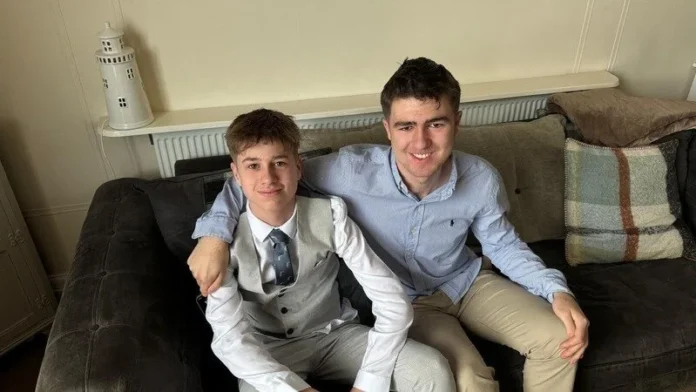
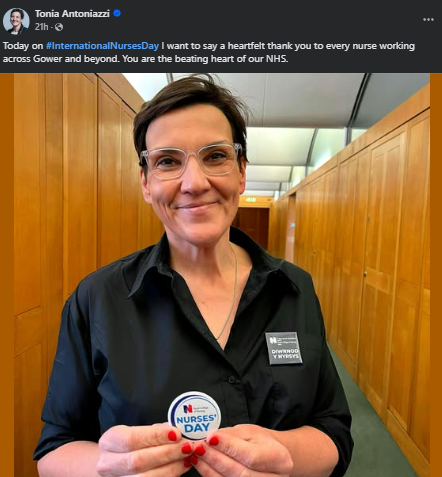
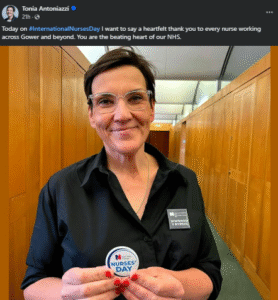
 The hypocritical posts from Tonia has seen a backlash of comments, some of which are published below:
The hypocritical posts from Tonia has seen a backlash of comments, some of which are published below:



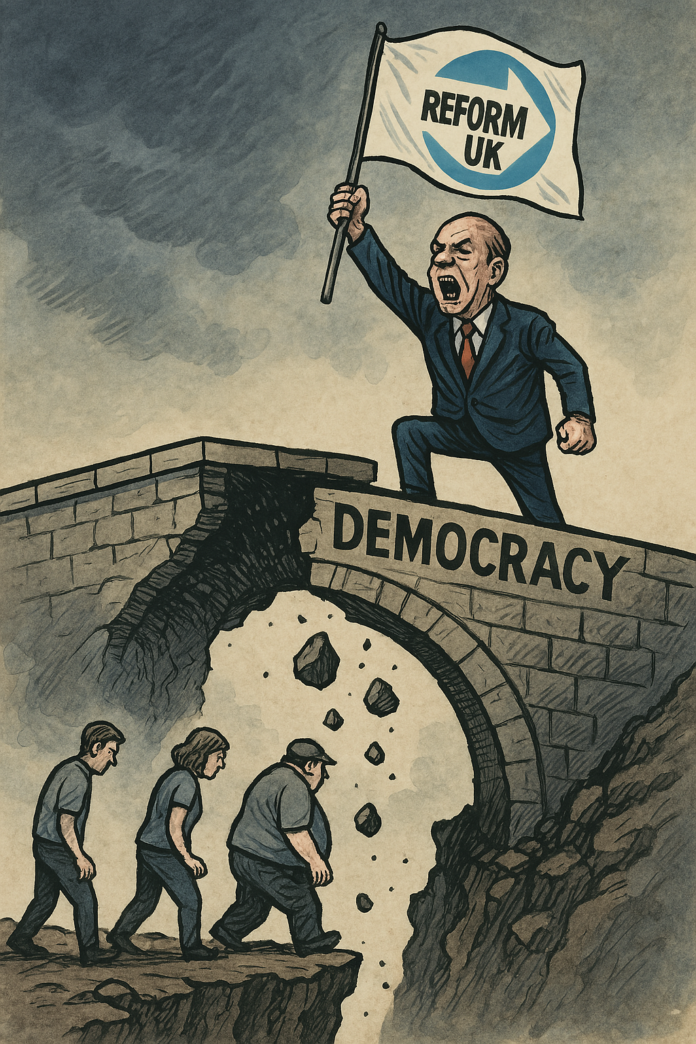

 Wales has always been a country of resilience, culture, and community, and the latest news highlights how these qualities are helping Wales navigate the challenges of the present. From political developments to environmental initiatives, here’s a look at some of the most significant news stories shaping Wales right now.
Wales has always been a country of resilience, culture, and community, and the latest news highlights how these qualities are helping Wales navigate the challenges of the present. From political developments to environmental initiatives, here’s a look at some of the most significant news stories shaping Wales right now.
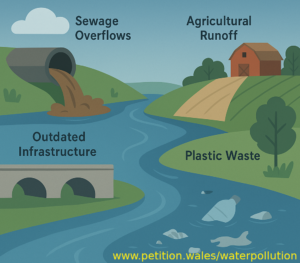 Conclusion: A Call for Action
Conclusion: A Call for Action